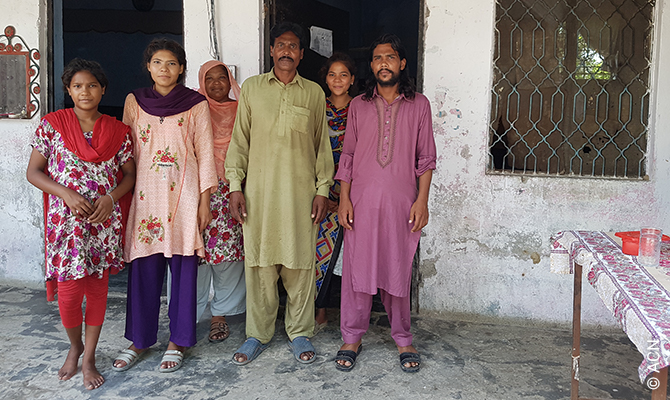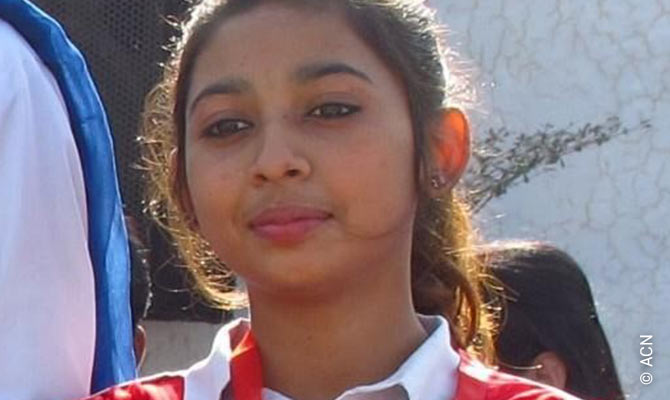Pakistan in 2020
Of Pakistan’s approximately 207 million inhabitants, about 97% are Muslims. Religious minorities – including Christians, who make up 2% of the total population – are practically second-class citizens. They suffer discrimination and often violence.
Christians were often excluded from assistance from the state and local NGOs.
Of particular concern are abductions of young girls who are forced into marriage and conversion to Islam. In 2020, several such cases became public. ACN is particularly committed to training and securing the livelihoods of priests and religious in Pakistan and launched an emergency coronavirus programme in 2020.

Christians and other minorities in Pakistan particularly suffer from the effects of the pandemic due to their low social status, as many families have lost their livelihoods. As ACN learned from the local Church, Muslim leaders and even some NGOs refused to support Christians and other religious minorities under the Covid-19 emergency relief. Aid programmes offered at the state level also mostly exclude religious minorities.

In the Dioceses of Faisalabad, Islamabad-Rawalpindi and Lahore, ACN therefore launched an emergency relief programme totalling 150,000 euros during the lockdown. 5,000 needy, predominantly Christian families could be supplied with food.

The priests and catechists of the dioceses were also equipped with protective material such as masks and disinfectants to ensure the continued care of the faithful. As many Pakistanis do not have access to the Internet, an awareness programme about Covid-19 was also launched via local radio and printed handouts. Furthermore, we continued to support the local Church in the training and sustenance of priests and religious, as well as the continuing education of lay people.

Scholarships for pupils from poor families
The coronavirus crisis further plunged poor families, in particular, into hardship in Pakistan. Many men and women became unemployed as a result of the pandemic and were thus unable to afford school fees for their children. In desperation, many have asked for donations in their churches. As part of our coronavirus emergency aid, we therefore also support pupils from particularly needy families with scholarships, so that they can continue their school education during the lockdown.